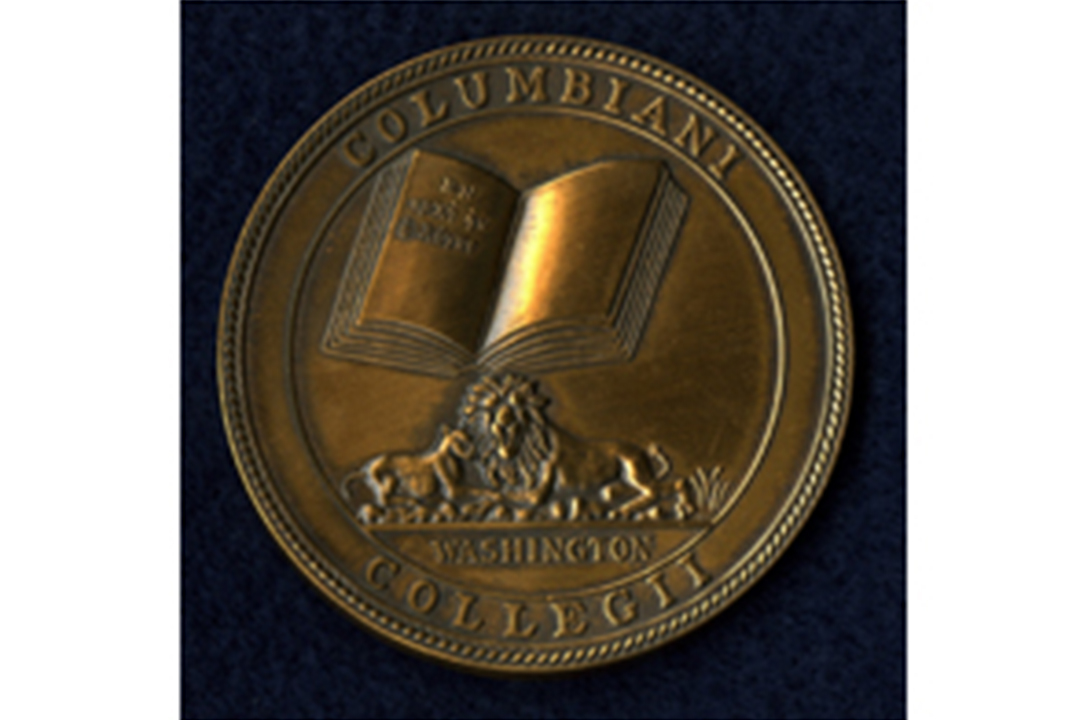Columbian College faculty elected nine representatives—three from each of the divisions of Math and Science, Arts and Humanities, and Social Science—to the Dean’s Search Committee. The group will lead a nationwide search to find a successor to Dean Peg Barratt, who announced her intention last May to end her six-year tenure as dean effective June 30, 2013.
Elected to the committee are Associate Professor of History and International Affairs Nemata Blyden, Professor of Chemistry Chris Cahill, Weintraub Associate Professor of Biology James Clark, Associate Professor of English Holly Dugan, Professor of Physics Allena Opper, Professor of Sociology and Public Policy and Public Administration Steve Tuch, Professor of Political Science Paul Wahlbeck, Professor of Spanish and International Affairs Sergio Waisman, and Professor of Philosophy and Human Sciences Gail Weiss.
“We on the Dean's Council have completed our part of the process and are very optimistic about the possibilities from here,” said Mark Reeves, associate professor of physics and chair of the Dean’s Council, which supervised the election process.
According to the Columbian College bylaws, the Provost’s Office is now charged with convening the committee’s first meeting in which search criteria will be established. The bylaws also encourage the committee to select non-voting members, including a Board of Trustees member, CCAS alumnus/alumna, Advisory Council member, and at least one undergraduate student and one graduate student.
About the Committee Members
Nemata Blyden (History) specializes in African and African Diaspora history and women's issues in nineteenth century Liberia. She has worked for Encyclopedia Britannica and contributed to an on-line historical project called “In Motion: The African-American Migration Experience.” Blyden has lived in Africa, Europe and the Soviet Union, and she remains engaged with issues pertaining to African development.
Christopher Cahill (Chemistry) is an expert in solid-state and materials chemistry with a particular emphasis on X-ray crystallography. His expertise includes high temperature techniques and hydrothermal systems to produce novel hybrid materials of relevance to the nuclear fuel cycle. Cahill is also developing a nuclear science curriculum for non-technical individuals within the energy and weapons proliferation arenas.
James Clark (Biology) is world-renowned for his work in examining and interpreting fossil land vertebrates, especially those from fossil deposits of the Age of Dinosaurs. He is currently working on a field project funded by the National Science Foundation to explore the Middle to Late Jurassic Shishugou Formation of Xinjiang, China.
Holly Dugan’s (English) research and teaching interests include exploring the relationships between history, literature, and material culture. Her scholarship focuses on questions of gender, sexuality, and the boundaries of the body in late medieval and early modern England. She is also working on a book-length project that examines the pre-modern history of primatology through the lens of Shakespeare.
Allena Opper (Physics) is focused on experimental nuclear physics. Her specific area of interest is on intermediate energy nuclear reactions and scattering processes, including the investigation of fundamental symmetry via high precision measurements and polarization phenomena. She is chair of the Physics Department and a member of the Institute for Nuclear Studies.
Steven A. Tuch (Sociology) explores race and ethnic relations, inequality, mobility, public opinion, and the post-communist states of Central and Eastern Europe. He is currently working on an American Sociological Association and National Science Foundation funded project on "Religion, Culture Wars, and Polarization in the U.S. Congress, 1971-2008". Tuch chairs the Sociology Department.
Paul Wahlbeck (Political Science) explores judicial politics and research methods, examining legal change, oral argument before the Supreme Court, strategic interaction among justices, and institutional development. A former director of the Law and Social Science Program at the National Science Foundation and its Political Science Program, he now serves as chair of Columbian College’s Political Science Department.
Sergio Waisman’s (Romance, Germanic, and Slavic Languages and Literatures) field of expertise is Latin American literature and culture, translation, and literary theory. His book, Borges and Translation: The Irreverence of the Periphery, and Leaving, was published in the U.S. and Argentina. He has also translated six books of Latin American literature, including The Absent City by Ricardo Piglia, for which he received an NEA Translation Fellowship Award in 2000.
Gail Weiss’ (Philosophy) research interests include phenomenology, existentialism, feminist theory, critical race theory, and philosophy of literature. She is currently working on two book projects and co-editing a special issue of the philosophy journal Hypatia. Weiss serves as chair of the Department of Philosophy.


